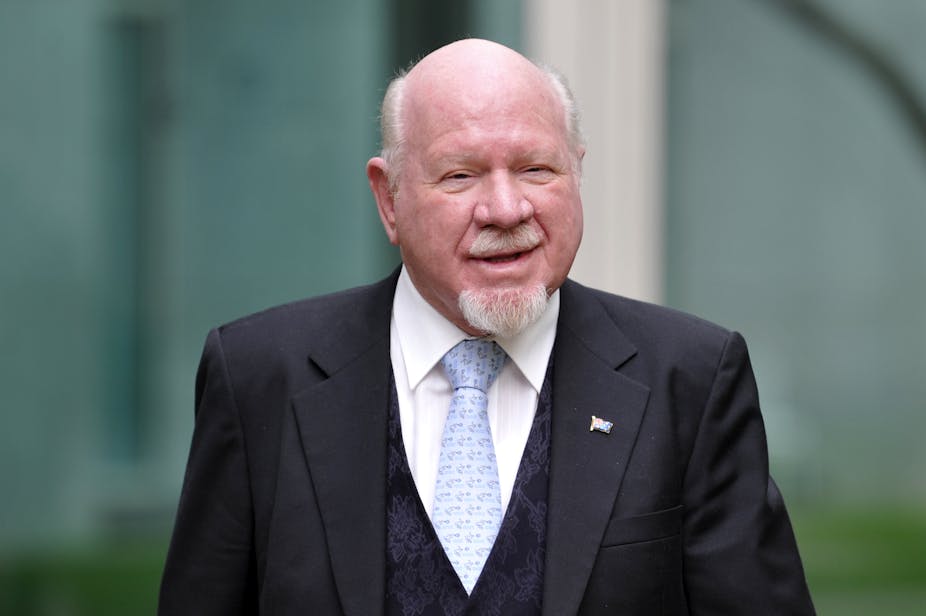The row over Tony Abbott’s controversial paid parental leave scheme has widened with prominent Liberal moderate Mal Washer calling on the opposition leader and shadow treasurer to explain to the party room “why they are still welded onto this concept”.
NSW Liberal backbencher Alex Hawke has aired broad private concerns within the Coalition saying the plan, “at a potential cost of $4.3 billion”, would be “an unjustifiable impost on business” and was “ill-suited to an economically Liberal agenda”.
Washer, from Western Australia, told The Conversation that Abbott, Joe Hockey and finance spokesman Andrew Robb should tell colleagues why they believed the scheme was such a good idea and would assist productivity.
“The Labor party scheme is quite good,” Washer said. “I don’t see why it is necessary to go to this level and how it will assist productivity.” It would be a burden on business, he said.
The Hawke attack was made in an article for the journal of the free market think-tank, the Institute of Public Affairs and was publicised as Hockey was preparing to address the IPA. Hockey strongly defended the plan.
The scheme would give women six months leave on full pay up to a maximum of $75,000. It is capped at an annual salary of $150,000. The plan would be financed by a levy on the nation’s top more than 3000 companies.
The opposition points out that women aged 18 to 49 who earn more than $100,000 represent only around 1.5% of all people with taxable incomes, and that the levy would apply to fewer than one in 200 businesses in Australia.
Abbott, who has made the generous scheme a signature policy despite the doubts in his own ranks, dismissed the Hawke criticisms. He said Hawke was one backbencher, who was entitled to his views.
Abbott said the policy was “a very important sign that we get it when it comes to the modern family”.
“The modern family invariably needs more than just one income. If we want to encourage families to have kids, if we want to make it easier for women to have careers and families, we need something like a proper paid parental leave scheme,” he said.
“I think this is a sign that we are prepared to move with the times and I’m totally committed to it and so is the party.”
Abbott said the scheme would be fully funded and was an economic reform. “We can’t really afford to lose so many highly capable women in the prime of life from the workforce,” he said.
“This is not just a family policy or a social policy. It’s not just something for women. This is something for everyone.”
But Hawke told the ABC this policy was “not as signature policy of the Coalition”. It had “crept into our policy”.
“I think it’s a very good time to be revisited in light of Labor announcing ongoing revenue write downs,” Hawke said.
“I have canvassed broadly amongst people in the community and I tend to find the feedback from business groups, from women in the community and from colleagues is that now would be a very good time to revisit this policy with a view to scrapping it before the next election so we can go to the election without this albatross around the neck of the party.”
Frontbencher Christopher Pyne said the paid parental leave scheme “will be one of the most important employment and wages policies of the beginning of this century, because we are treating paid parental leave as a workplace entitlement, not a welfare entitlement”.
Meanwhile, the latest Essential poll has found 55% of voters believe the government should cut spending to reduce the national debt, while only 13% think it should raise taxes to do so. It also found Hockey marginally more trusted to handle the economy than Treasurer Wayne Swan - 35% to 32%.
Labor trails the Coalition 44% to 56% on a two-party basis.

